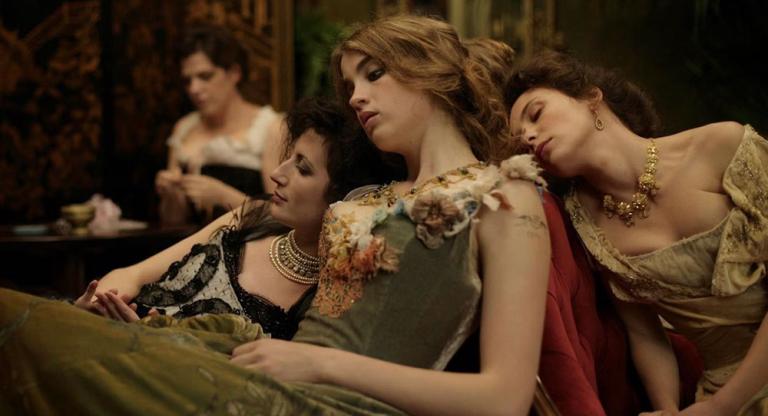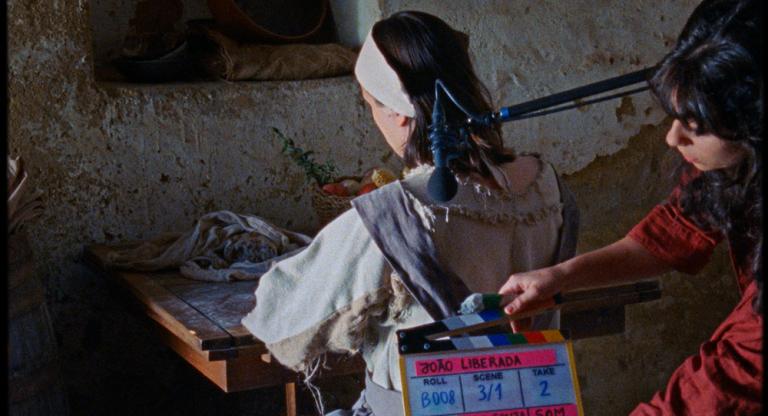Featured Screening: Shelf Life at Spectacle . Post by Danielle Burgos :
1963, Suburbia. A typical American family—2.5 kids, conservative Dad, gently inebriated Mom—are gathered around the TV when their program is interrupted by news of President Kennedy’s assassination. Dad figures it’s only a matter of time before the Commies, aliens, or whoever’s responsible reach their own front lawn, so down into the bomb shelter the family goes, sealing themselves off from the world until it’s safe to come out.
Thirty years later, they’re still down there. Mom and Dad died early on (the singsong ritual for proper can-opening and prayer noting vomit quantity point to botulism), but their remains remain—skeletons laid side-by-side in bed. It’s just another day in the subterranean life of their now-grown (but not adult) children as the three bounce fluidly from game to game to self-invented ritual, popping on records to set the proper tone for Egyptian Slave, Clean-Up Mom, Restaurant and Mighty Car (among others). Capturing the full weirdness of actual kids at play, the siblings (O-Lan Jones, Andrea Stein, and Jim Turner) feed off each other’s reactions, shifting allegiances and authority on a whim. They incorporate everything absorbed and at hand—right wing propaganda, jingles, worn comic books, vague memories—into their hermetically sealed microcosm. Unconscious sexual tension surfaces and lingers, but never really breaks through. Brief bursts of modern television occasionally penetrate 40 feet of concrete to their old Philco Predicta, but can’t link the siblings to a world they have absolutely no awareness of or interest in—the only fascination is as new fodder for their games.
In addition to a consistent career in film and television acting, Paul Bartel directed a handful of offbeat classics, including Eating Raoul and Death Race 2000. Shelf Life (1993) was his last directorial feature before he passed away in 2000, and never had a proper release (though it did screen at several independent venues, including an NYC premiere at the still-kicking Dixon Place). In a 1994 Daily News interview, Bartel said of the film’s rejection, “Even in the field of independent film-making, people tend to get pigeonholed, and if a film isn’t a certain kind of comedy, then I couldn’t have made it.” Instead of Bartel’s typical sardonic humor, Shelf Life is genuinely sweet, despite its freakish premise.
The film’s single set, limited players, and musical numbers hint at Shelf Life’s stage-play origins, but the actors’ total commitment and Bartel’s focus on their dynamics keep it from feeling static. Andy Paley’s 60s pop soundalike soundtrack also helps create a world out of time, and features Brian Wilson on the song “In My Moondreams.” —Danielle Burgos


